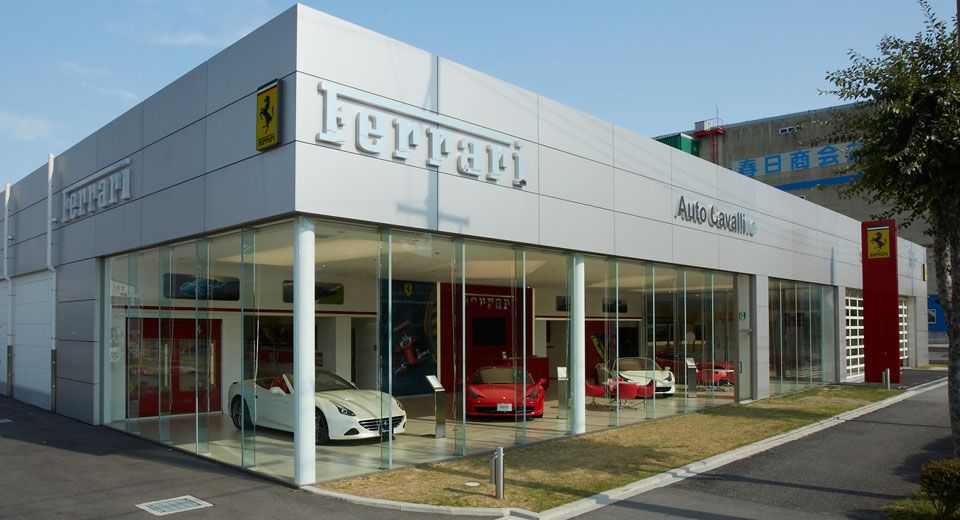Dealerships Double Down: Renewed Opposition To Mandatory EV Sales

Table of Contents
Economic Concerns Fueling Dealer Opposition to Mandatory EV Sales
The core of the dealerships' opposition to mandatory EV sales stems from significant economic challenges. The transition to EVs requires substantial investments and adjustments, placing a considerable burden on dealerships of all sizes.
High upfront investment costs for EV infrastructure:
Dealerships face steep upfront costs to adapt to the EV market. These expenses include:
- Specialized tools and equipment: Servicing EVs requires unique tools and diagnostic equipment, representing a substantial capital outlay.
- Technician training: Mechanics need specialized training to work on electric vehicle batteries, charging systems, and other EV-specific components. This involves significant training costs and potential downtime.
- Charging infrastructure: Installing and maintaining EV charging stations requires substantial investment, especially for larger dealerships aiming to support multiple fast-charging stations. This also includes the ongoing costs of electricity.
- Facility modifications: Dealerships may need to renovate their service bays and electrical systems to accommodate the specific needs of EV servicing.
The lack of substantial government support and insufficient incentives for dealerships to make these investments exacerbates the problem, particularly for smaller, independent dealerships with limited financial resources.
Uncertain EV Market Demand and Profitability:
Dealerships express legitimate concerns about the current state of the EV market:
- Regional variations in demand: EV adoption rates vary significantly across different regions and demographics, leading to uncertainty about the viability of meeting sales quotas in all areas.
- Lower profit margins: Profit margins on EVs are often lower than on gasoline-powered vehicles, impacting dealership profitability and potentially reducing their overall revenue.
- Rapid technological change: The rapid pace of technological advancements in the EV sector creates uncertainty about the long-term value of investments in specific EV models and technologies. This uncertainty makes long-term planning and investment difficult.
This uncertainty makes it challenging for dealerships to justify the significant financial risks associated with transitioning to EV-centric sales models.
Impact on existing inventory and sales strategies:
Mandates force dealerships to make significant changes to their business models:
- Shifting resources: Meeting EV sales quotas requires diverting resources, including staff, floor space, and marketing budgets, away from established, profitable vehicle lines.
- Balancing sales targets: Maintaining a balance between selling EVs and meeting the demands of their existing customer base presents a significant logistical and operational challenge.
- Additional training costs: Sales staff requires training on EV technology, features, and customer benefits to effectively market and sell electric vehicles. This adds to the overall operational costs.
Arguments Against Mandatory EV Sales and their Implications
The opposition to mandatory EV sales isn't simply about economics; it involves broader concerns about market dynamics and fairness.
Concerns about consumer choice and market forces:
Dealerships argue that government mandates interfere with consumer choice and free-market principles:
- Consumer-driven transition: They believe that the transition to EVs should be driven by consumer demand, rather than government intervention.
- Artificial price increases: Mandatory quotas could lead to artificial price increases for EVs as dealerships struggle to meet targets, harming consumers.
- Reduced consumer choice: Focusing solely on EVs might reduce the availability and choice of gasoline-powered vehicles, impacting consumer preferences.
They contend that the free market, driven by consumer demand and technological innovation, is the most efficient way to drive EV adoption.
Challenges in ensuring a fair and equitable transition:
The impact of mandatory EV sales quotas is not uniform across all dealerships:
- Disproportionate impact on smaller dealerships: Smaller, rural dealerships often lack the resources to invest in the infrastructure required to sell and service EVs. Mandates could disproportionately affect them, potentially leading to closures.
- Insufficient EV supply: There are concerns about the availability of a sufficient supply of EVs to meet mandated sales targets, potentially creating artificial shortages and price increases.
- Lack of charging infrastructure: A nationwide network of reliable public charging stations is crucial for widespread EV adoption, and its absence hinders the transition.
Addressing these inequities is crucial for a fair and effective transition.
The Role of Government Incentives vs. Mandates:
Dealerships advocate for a more balanced approach:
- Incentives over mandates: They believe that government incentives, such as tax credits, subsidies, and rebates, are a more effective and less disruptive way to stimulate EV adoption.
- Avoiding market distortion: Mandates can distort the market and stifle innovation by favoring certain manufacturers and technologies.
- Balanced approach: A combination of incentives, consumer education, and continued technological advancements would create a more sustainable and equitable transition.
Potential Solutions and Future Outlook for Mandatory EV Sales
Finding a compromise between environmental goals and the economic realities faced by dealerships is crucial.
Phased implementation of mandates:
A gradual approach would provide more time for adaptation:
- Gradual increase in quotas: A phased increase in EV sales quotas allows dealerships to adapt to the changing market at a more manageable pace.
- Reduced financial strain: This reduces the immediate financial strain on dealerships while still promoting EV adoption.
- Time for infrastructure development: This offers a more realistic timeframe for building the necessary infrastructure, training staff, and adjusting business models.
Increased government support for dealership infrastructure upgrades:
Targeted government support is critical for a smooth transition:
- Financial incentives and grants: Government funding could help dealerships upgrade their facilities to service EVs and install charging stations.
- Support for smaller dealerships: Targeted support for smaller dealerships is essential to ensure fair competition and prevent market consolidation.
- Investment in charging infrastructure: Significant investment in public charging infrastructure is key to promoting widespread EV adoption and addressing range anxiety.
Collaboration between government, manufacturers, and dealerships:
Open communication and collaboration are vital for success:
- Open dialogue and cooperation: Open communication and collaboration among government agencies, EV manufacturers, and dealerships are essential to finding mutually beneficial solutions.
- Shared responsibility: The transition to EVs requires a shared responsibility among all stakeholders, ensuring a sustainable and equitable outcome.
- Long-term strategy: Developing a long-term strategy that considers both environmental goals and the economic viability of dealerships is crucial for successful EV adoption.
Conclusion
The debate surrounding mandatory EV sales is complex and requires careful consideration. Dealerships' concerns, rooted in legitimate economic challenges, highlight the need for a balanced approach. While transitioning to EVs is vital for environmental sustainability, a phased implementation of mandates, increased government support, and collaborative problem-solving are crucial for a smooth and equitable transition. Ignoring the concerns of dealerships risks undermining the very goals of increased EV adoption. Understanding the challenges related to mandatory EV sales is paramount for policymakers and industry leaders. Let's work towards a constructive dialogue that paves the way for a future where environmental responsibility and economic viability coexist.

Featured Posts
-
 Singapore Election A Pivotal Moment For The Nation
May 05, 2025
Singapore Election A Pivotal Moment For The Nation
May 05, 2025 -
 Mne Tak Povezlo Dzhidzhi Khadid O Romane S Kuperom
May 05, 2025
Mne Tak Povezlo Dzhidzhi Khadid O Romane S Kuperom
May 05, 2025 -
 Australia Votes Albaneses Labor Leads In Election Polls
May 05, 2025
Australia Votes Albaneses Labor Leads In Election Polls
May 05, 2025 -
 Ufc 315 And May 2025 Fight Card Complete Schedule And Predictions
May 05, 2025
Ufc 315 And May 2025 Fight Card Complete Schedule And Predictions
May 05, 2025 -
 Kentucky Derby 151 Countdown Your Guide To Race Day
May 05, 2025
Kentucky Derby 151 Countdown Your Guide To Race Day
May 05, 2025
